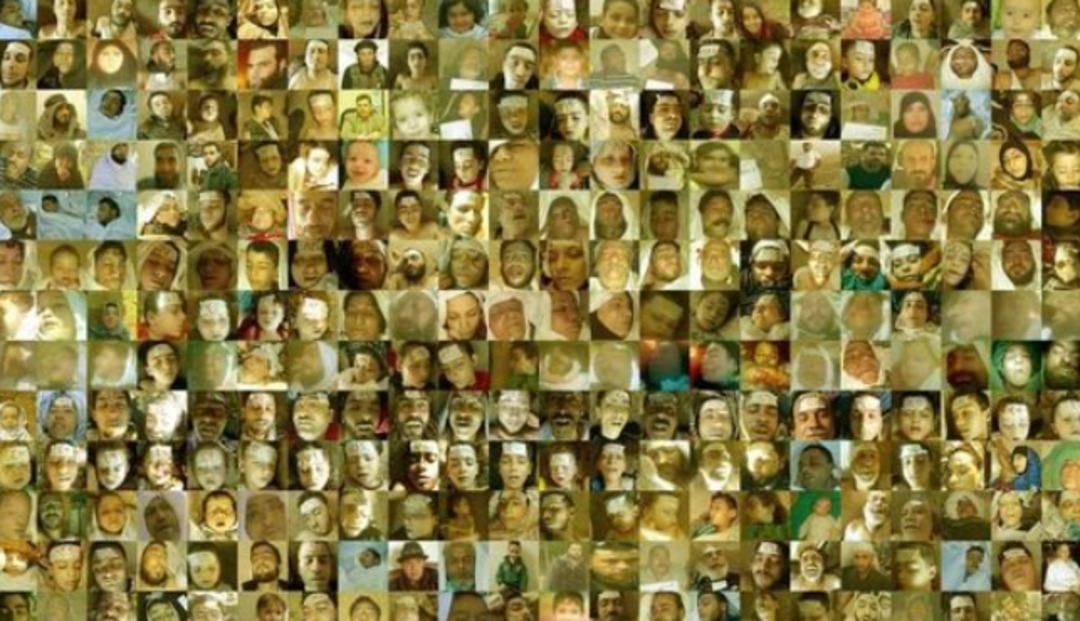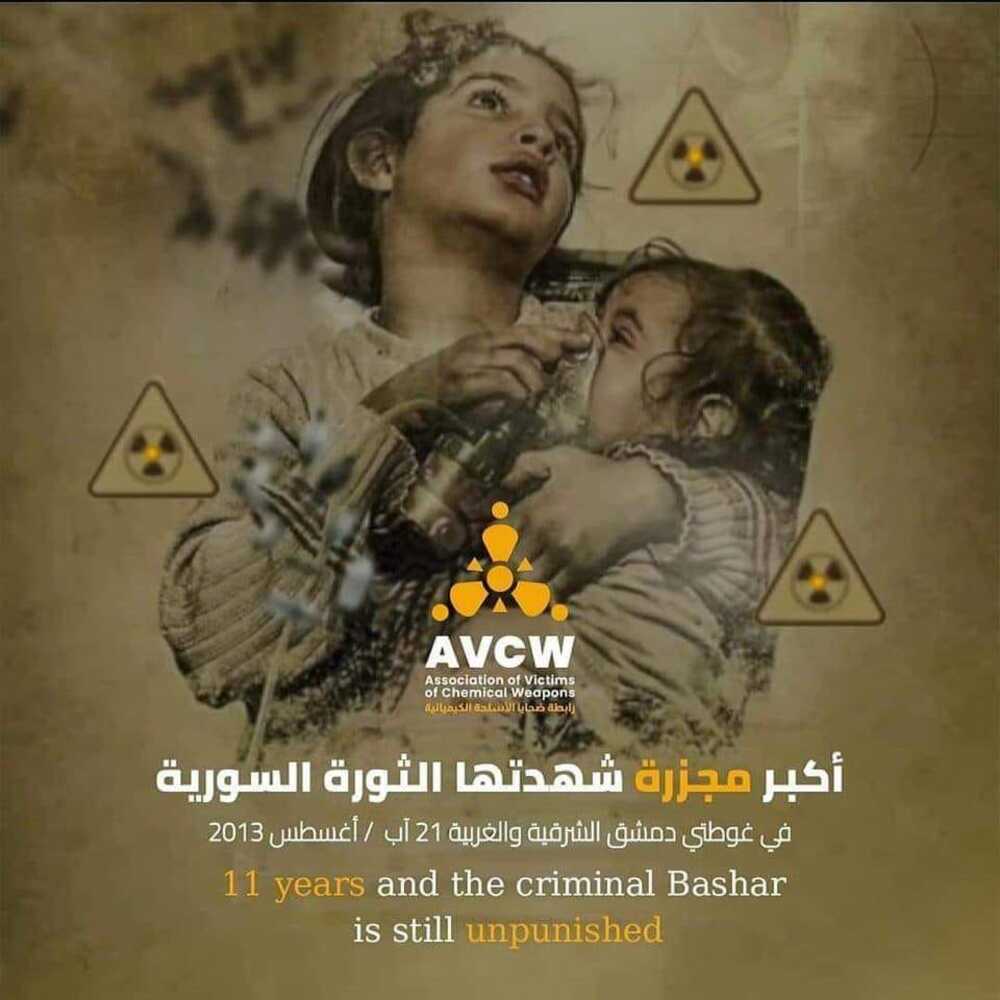-
The Memory of the Eastern Ghouta Massacre in Syria: Ongoing Pain...

The Memory of the Eastern Ghouta Massacre in Syria: Ongoing Pain
The Eastern Ghouta massacre on August 21, 2013, is not just a memory—it was a day when the regime annihilated its people using chemical weapons, internationally banned arms, and sarin gas without mercy, all to keep a ruler in power, a ruler whose seat is stained with the blood of innocents.
It is worth noting that Eastern Ghouta was one of the first areas from which the peaceful Syrian revolution emerged before it became armed, with protests calling for the overthrow of the regime. The massacre was an act of retaliation against this, especially since the area had fallen out of Assad's control in 2012 and was subjected to a year-long siege that led to a humanitarian crisis where residents suffered from hunger.

The Syrian Interim Government issued a statement condemning the chemical massacre that took place in Eastern Ghouta on August 21, 2013, which resulted in the death of 1,144 people, according to the Syrian Network for Human Rights.
The statement read: "Today marks the 11th anniversary of the chemical massacre in Ghouta, perpetrated by the criminal Assad regime, which stands as one of the most heinous massacres in modern history."
The government explained in its statement that "at dawn on August 21, 2013, regime forces launched a rocket bombardment campaign targeting various areas in the towns of Eastern Ghouta with rockets loaded with chemical warheads. This led to the martyrdom of more than 1,500 people, most of them women and children, and caused thousands of others to suffer from asphyxiation."
Read More:
Escape or Protection? Saint Petersburg: The New Haven for the Assad Family !
The statement added: "Despite the brutality of the crime, the international community merely condemned and denounced it without taking any deterrent measures against the perpetrators. This emboldened the Assad regime to commit more massacres and use chemical weapons again, as occurred in Khan Sheikhoun and Al-Lataminah in 2017."
The government's statement pointed out that "the Organization for the Prohibition of Chemical Weapons confirmed the Syrian regime's responsibility for many chemical attacks, yet it remains unpunished to this day."
The statement concluded by emphasizing the necessity of holding the Syrian regime accountable for its crimes, stressing that the Syrian people will not accept anything less.
You May Also Like
Popular Posts
Caricature
BENEFIT Sponsors BuildHer...
- April 23, 2025
BENEFIT, the Kingdom’s innovator and leading company in Fintech and electronic financial transactions service, has sponsored the BuildHer CityHack 2025 Hackathon, a two-day event spearheaded by the College of Engineering and Technology at the Royal University for Women (RUW).
Aimed at secondary school students, the event brought together a distinguished group of academic professionals and technology experts to mentor and inspire young participants.
More than 100 high school students from across the Kingdom of Bahrain took part in the hackathon, which featured an intensive programme of training workshops and hands-on sessions. These activities were tailored to enhance participants’ critical thinking, collaborative problem-solving, and team-building capabilities, while also encouraging the development of practical and sustainable solutions to contemporary challenges using modern technological tools.
BENEFIT’s Chief Executive Mr. Abdulwahed AlJanahi, commented: “Our support for this educational hackathon reflects our long-term strategic vision to nurture the talents of emerging national youth and empower the next generation of accomplished female leaders in technology. By fostering creativity and innovation, we aim to contribute meaningfully to Bahrain’s comprehensive development goals and align with the aspirations outlined in the Kingdom’s Vision 2030—an ambition in which BENEFIT plays a central role.”
Professor Riyadh Yousif Hamzah, President of the Royal University for Women, commented: “This initiative reflects our commitment to advancing women in STEM fields. We're cultivating a generation of creative, solution-driven female leaders who will drive national development. Our partnership with BENEFIT exemplifies the powerful synergy between academia and private sector in supporting educational innovation.”
Hanan Abdulla Hasan, Senior Manager, PR & Communication at BENEFIT, said: “We are honoured to collaborate with RUW in supporting this remarkable technology-focused event. It highlights our commitment to social responsibility, and our ongoing efforts to enhance the digital and innovation capabilities of young Bahraini women and foster their ability to harness technological tools in the service of a smarter, more sustainable future.”
For his part, Dr. Humam ElAgha, Acting Dean of the College of Engineering and Technology at the University, said: “BuildHer CityHack 2025 embodies our hands-on approach to education. By tackling real-world problems through creative thinking and sustainable solutions, we're preparing women to thrive in the knowledge economy – a cornerstone of the University's vision.”
opinion
Report
ads
Newsletter
Subscribe to our mailing list to get the new updates!






















